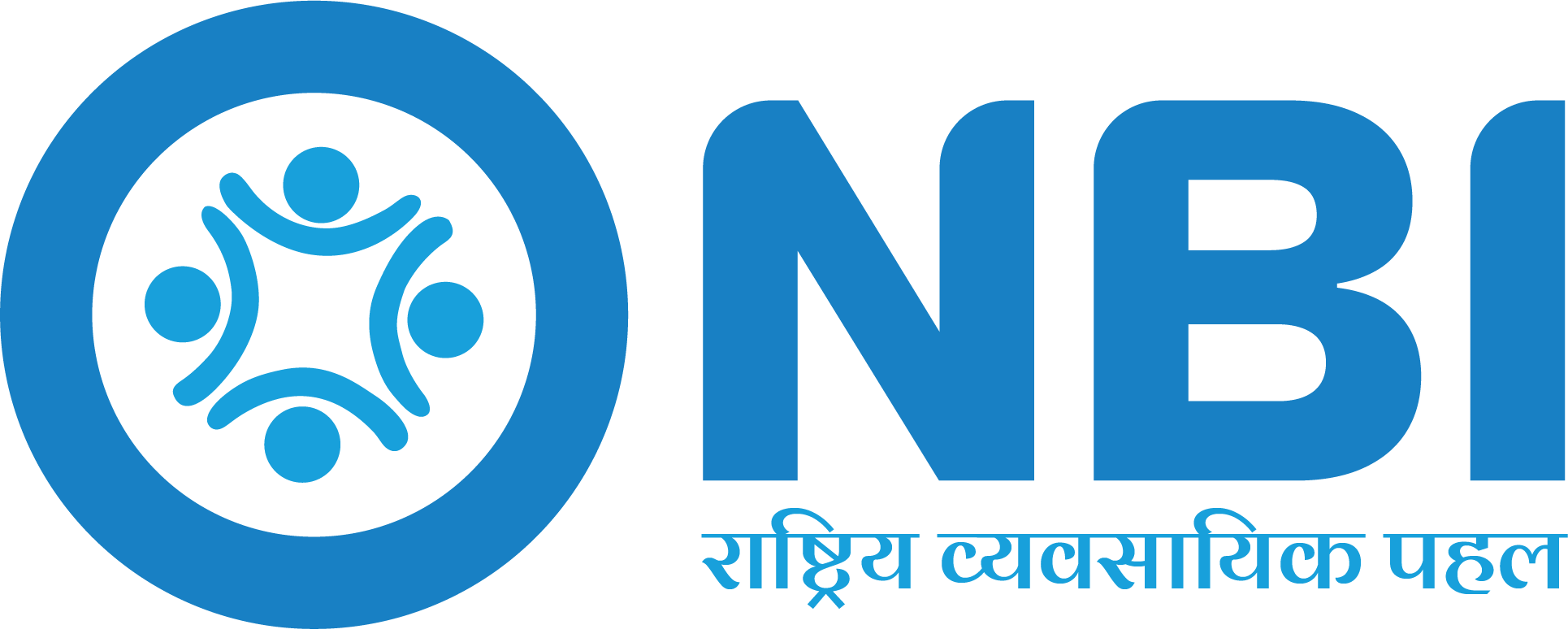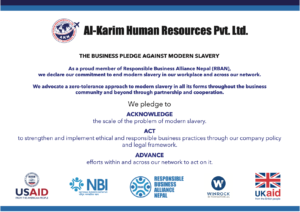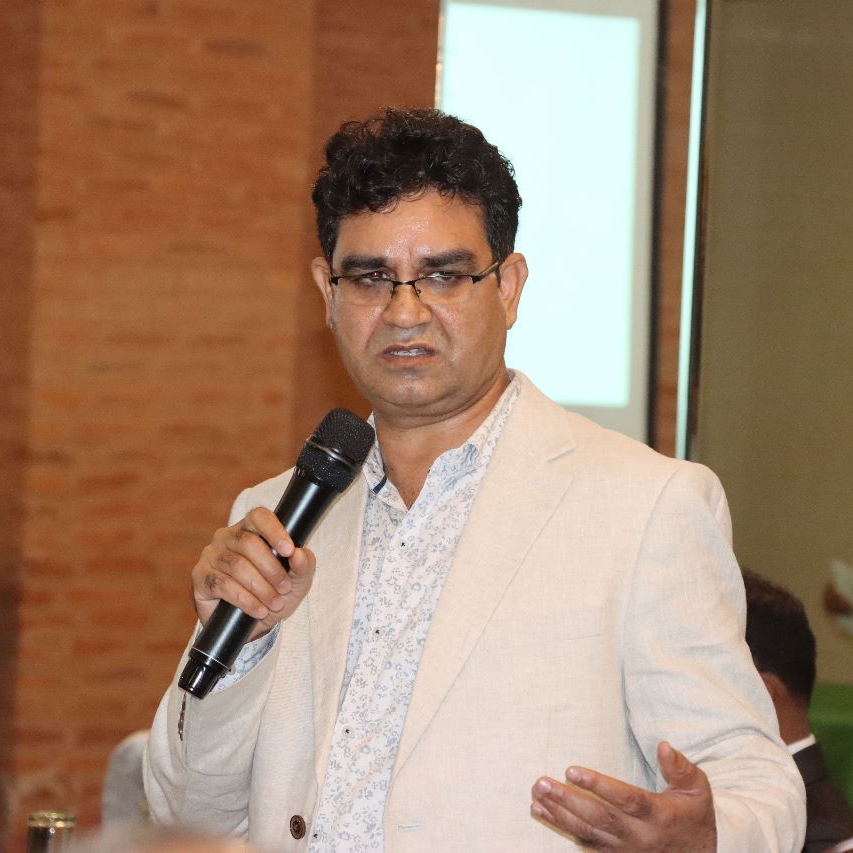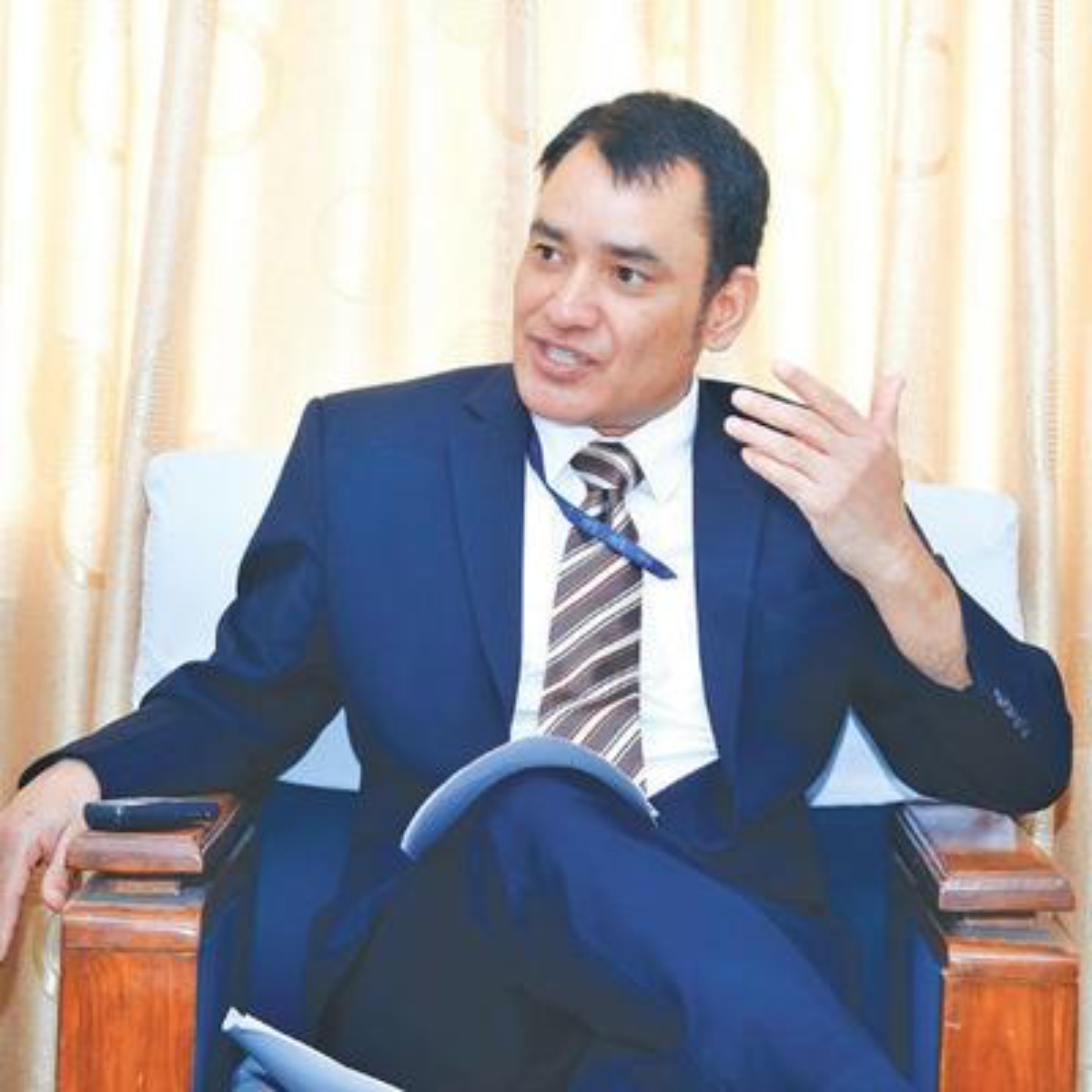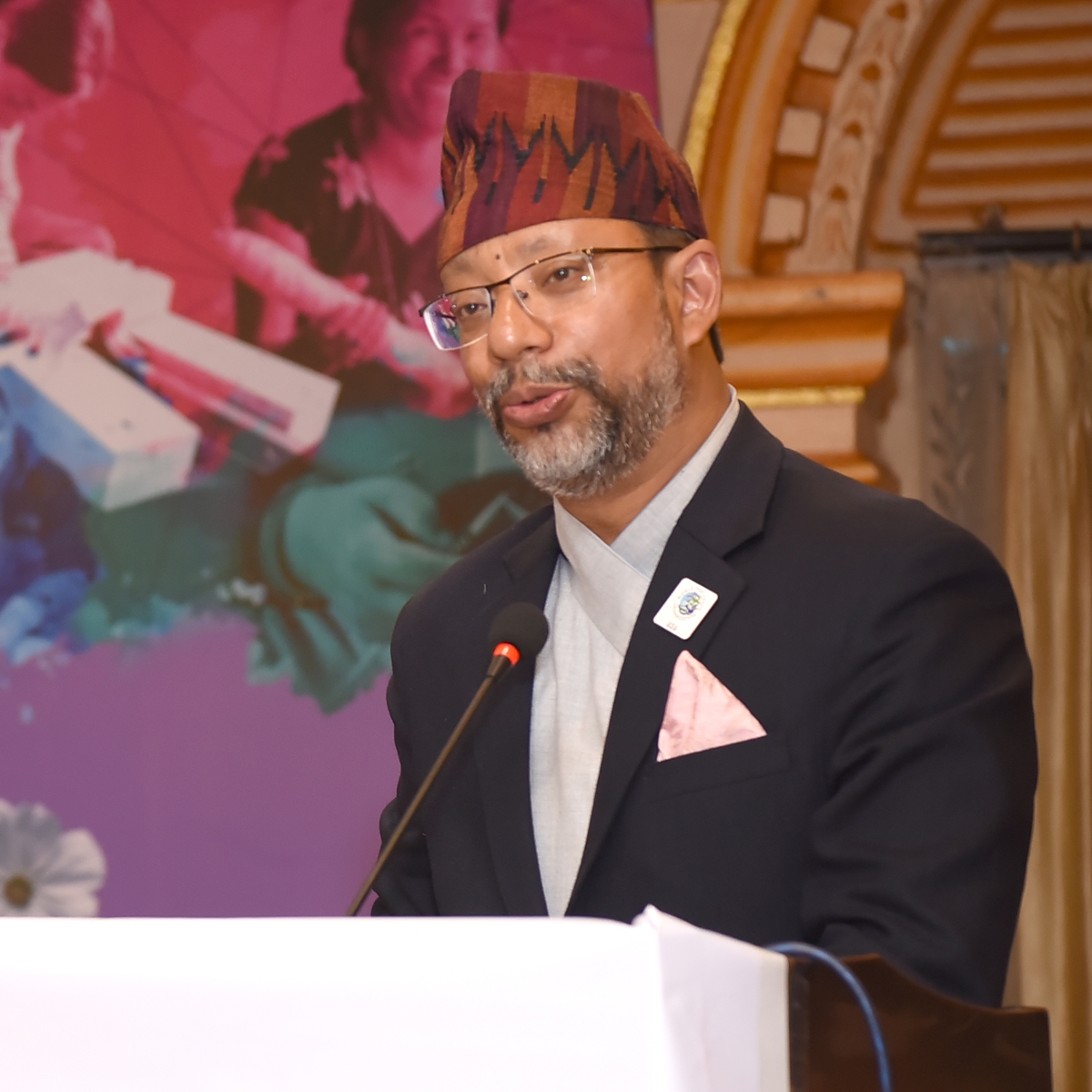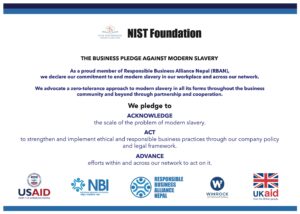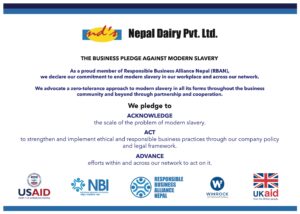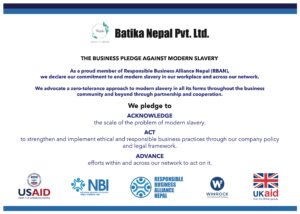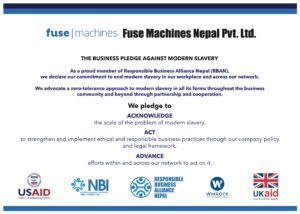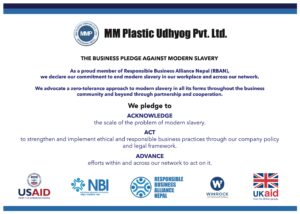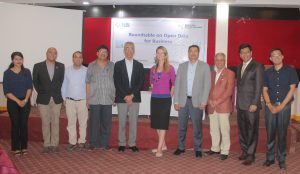
Introduction
On 17th June 2018 the National Business Initiative (NBI) in collaboration with the Data for Development in Nepal Program (implemented by the Asia Foundation in partnership Development Initiatives with funding from the UK Government’s Department of International Development) held a roundtable discussion with business leaders on “Open Data for Business”.
In the past few years, there has been initial efforts from the Government of Nepal to open up data to the public. There is also growing discourse among government agencies and civil society on open data and recognition of its importance to Nepal’s development. However, the use of open data and information by Nepal’s private sector appears to be limited. To date, very little detail is known about the demand, use and sharing of open data by Nepal’s private sector and there has been very little work conducted to support Nepal’s private sector to access, use and share open data and information. The Data for Development in Nepal Program in collaboration with NBI want to build demand among the private sector for data, help meet private sector needs for data, and grow will among the private sector to openly share their own data. Through this they hope to support Nepal’s private sector to release the value of open data to strengthen Nepal’s economic development.
As a first step in this process, the roundtable was held to sensitize Nepal’s business leaders to the concept and potential of open data. It provided a forum for business leaders to discuss open data and its implications. The discussions from the roundtable will inform the design of interventions to support the improved sharing and use of open data for business in future. The key objectives of the roundtable were:
To sensitize Nepal’s business leaders to the concept of open data and its potential benefits to business
To gain insights into the challenges facing business in accessing and using government data, and into the government datasets considered to be of high value to the private sector
To gain insights into the data held by businesses and their willingness to share this data.
The roundtable was held at the Yellow Pagoda Hotel, Kathmandu on the 17th of June 2018 from 14:00 – 17:00 hours. Mr. Padma Jyoti, President of the NBI opened the roundtable followed by a key note presentation from Mr. Allen B. Tuladhar, CEO of the Microsoft Innovation Center Nepal. The roundtable continued with a panel discussion with representatives from leading and diverse private sectors namely, Mr. Kush K. Joshi from NEEK Transformers; Mr. Arniko Rajbhandari from Nepal Dairy; Mr. Sudhir Mittal from Shree Airlines and Mr. Prabin Basnet from Machhapuchhre Bank. Around 20 participants from business and civil society enthusiastically participated in the event.
Open data for business in Nepal
The key note presentation shared an introduction to open data, its potential value to the economy and its importance to businesses in Nepal. The findings of global research studies into the economic value of open data were shared, for example, McKinsey Global estimated that open data could contribute between USD 3 trillion to USD 5 trillion to the global economy each year, and the European Data Market Study (2017) estimated that the value of the EU data economy is expected to grow up to EUR 739 billion by 2020 (4% of the EU GDP). Deloitte estimated that the opening up of data on public transportation in London has generated approximately GBP 130 million for the London economy. Based on this data, over 600 apps were developed used by 42% of Londoners. Examples of other countries experiencing economic benefits through sharing open data, including Colombia whose government has made data open on budget and expenditure, Paraguay whose government has made data open on tenders and procurement, Thailand whose government has made data open on company registration, and Taiwan whose government has made data open on land ownership. It was shared that open data in Nepal could help Nepali businesses by giving rise to entrepreneurial innovations and helping companies to segment markets, define new products and services, and improve the efficiency and effectiveness of operations. Open data could also help attract foreign investment to Nepal and create jobs. The key note presentation recognised that, despite the huge potential open data holds for the private sector and for economic growth in Nepal, there is currently a lack of open data – both from government and from the private sector. The presentation opened up discussions around how progress can be made away from the current situation towards an environment where businesses and the economy can experience the kind of benefits from open data that are being seen in other parts of the world.
Business demand for and experiences with government data
The panel discussions highlighted the strong acknowledgement that data and information is critical to business decisions and competitiveness. Whereas in the past, business decisions in Nepal were based on perceived knowledge, opinion and assumptions, the panel agreed that this no longer sufficient in today’s world. The panel shared examples from their own experiences of when lack of data had caused challenges for their business. For example, an airline company had faced difficulties in making an investment decision to restart a closed route when they did not have demographic, income and behavior data on potential travelers, vehicle movements on existing travel routes; the banking sector experienced a liquidity crunch due to their incorrect remittance forecasts resulting from lack of data; and a dairy business suffered losses when they had imported too much milk powder due to incorrect estimates resulting from a lack of data on climate and agricultural inputs to milk production. The agriculture sector expressed a need for data on weather forecasts, agricultural production, imports and consumption as well as information on market share and product information to enable effective marketing, positioning, new product strategies and market pricing. The importance of businesses using data from the Department of Industry to help analyze financial feasibility and make investment decisions was also mentioned.
There were appreciations for information and data that government has opened to the public such as trade data from the Department of Customs (DoC) and Trade and Export Promotion Center; aid data from the Ministry of Finance’s Aid Management Platform; monetary information from the Nepal Rastra Bank (NRB); demographic and economic survey data by the Central Bureau of Statistics, and company registration data by the Office of the Company Registrar etc. However, it was generally agreed that steps needed to be taken to improve awareness within the private sectors on the availability and application of the datasets available from government, and that although some data was available it was not sufficient for businesses to make investment decisions. In part, this is because most of this information is shared in closed formats such as pdf rather than in reusable formats. There were also concerns about the authenticity and lack of timeliness of the available data and the need to rely on informal mechanisms such as personal connections to acquire up-to-date data and other sources of data. Whereas much of the discussion focused on the reticence of government in sharing data, the need for the private sector to publicly publish their data was also mentioned as equally important.
It was recognized that open data is not only of benefit to the private sector, but it can also be of benefit to the government, for example open data can help identify fraudulent trading activities, minimize informal trade and increase in revenue collection through connecting banking data with NRB and DoC data. Similarly, the potential of minimizing banking fraud through connecting banks with criminal databases of Nepalese security was recognised.
It was believed that the capacity of the private sector to demand needful information from government could be improved. It was explained that there is a need to identify the kind of data that is required for the private sector and for this to be communicated to the government so that they can identify ways to meet these needs. The role of groups like business associations, the NBI and the Data for Development Program was recognized as important to helping to build this link.
Business interest in non-government data and willingness to open up their data
In addition to government data, the value of non-government open data for business operations, innovation and decisions was acknowledged. For example, it was suggested that existing open data such as CNN and BBC weather forecasts could support the aviation sector to update customers on flight delays as well as inform agricultural sectors on crop decisions. Similarly, it was felt that the use of market information from the Federation of Nepalese Chamber of Commerce and Industry and agricultural data from Feed the Future/USAID and the Nepal Agricultural Research Council could support agricultural business decisions.
It was recognized that some of the sectors represented hold more data than others, for example the financial services sector and aviation sector. While there was agreement on the value of opening up private sector data, there was also concern about the commercial sensitivities of data, and it was proposed that generally accepted beliefs that “your ignorance is my business” would translate into a reluctance by business to open their data. At the event, the banking and aviation sector acknowledged the possibilities of opening up certain anonymized and non-sensitive datasets. For example, the aviation sector showed a readiness to open anonymized data on numbers of travelers and their travelling patterns. Likewise, the banking sector showed readiness to open anonymized data on consumer preferences, financial inclusion, consumer behavior, imports and exports, consumption patterns, and remittances. It was suggested that the banking sector could collaborate together in developing a single window system for sharing unique customer information and other data between banks to simplify procedures for customers and support other banks with unified and authenticated information.
Recommendations for potential next steps
As a first step towards enabling the private sector to build value from open data, the Roundtable aimed to sensitize private sector to the benefits of open data with examples and evidence of business growth through open data in other countries. It was suggested that further sensitization steps could be taken, for example, to inform government agencies about the benefits of open data and educate the private sector on the existing open data available to them in Nepal.
In terms of other important efforts towards the effective use of open data by business, it was suggested that firstly steps are taken to determine specific data needs of business and identify the priority datasets of high value to the private sector. Secondly, using this information, the private sector should be convened and capacitated to demand high-value publicly-funded information from the government. To support progress, government agencies may then need to be capacitated to respond to these needs by opening their data in reusable formats. It was also recommended that initial steps towards supporting the private sector to open data could focus on aviation and banking sectors as a start as they have a huge number of datasets and a willingness to open up data anonymously.
The NBI and the Data for Development in Nepal Program shall further work together over the coming months to grow the discourse around open data for business and encourage the private sector towards harnessing the economic opportunities provided by open data.
For further information
For further information about the roundtable, the topic of open data for business or the Data for Development in Nepal Program please contact:
Development Initiatives – louisa.dennison@devinit.org
The Asia Foundation – tirza.theunissen@asiafoundation.org
The National Business Initiative – info@nbi.org.np
